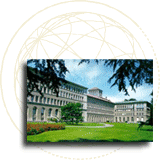Trade: CSOs call for strong support for TRIPS waiver to combat COVID-19
Published on Thu, 2020-10-15 13:33
Nearly 380 civil society organizations have urged Members of the World Trade Organization to strongly support the adoption of a draft decision proposed by India and South Africa for a waiver from certain provisions of the TRIPS Agreement to combat the worsening COVID-19 pandemic. India and South Africa have submitted a proposal (IP/C/W/669) to the WTO TRIPS Council on a "Waiver from certain provisions of the TRIPS Agreement for the prevention, containment and treatment of COVID-19". In their letter to the WTO Members, the CSOs said that in a global pandemic where every country is affected, a global solution is needed. According to the CSOs, adoption of a Waiver at the WTO level will suspend implementation, application and enforcement of the relevant provisions of the TRIPS Agreement in relation to prevention, containment, and treatment of COVID-19. It enables an expedited, open and automatic global solution to allow uninterrupted collaboration in development, production and supply, and to collectively address the global challenge facing all countries. "It's time for governments to take collective responsibility and put people's lives before corporate monopolies," the CSOs emphasized. In this regard, the CSOs strongly requested the WTO Members to unequivocally support the adoption of the proposed Waiver at the TRIPS Council meeting, which is taking place from 15 to 16 October. The civil society letter was signed by a number of global organizations and networks including Friends of the Earth International; Health Action International (HAI); Institute for Agriculture and Trade Policy; International Trade Union Confederation (ITUC); Knowledge Ecology International (KEI); LDC Watch; Medecins Sans Frontieres (MSF) Access Campaign; Oxfam; People's Health Movement; Public Services International (PSI); Social Watch; Society for International Development; Transnational Institute; and Third World Network. A range of regional and national organizations also signed onto the CSO letter. In their letter to the WTO Members, the CSOs noted that when COVID-19 was declared to be a pandemic, there was overwhelming consensus that to curb the spread of the disease, there was an urgent need for international collaboration to speed up product development, the scale-up of manufacturing, expand the supply of effective medical technologies and ensure that everyone, everywhere is protected. There were even calls including from several Heads of State for COVID-19 medical products to be treated as global public goods. Seven months into the pandemic, there is no meaningful global policy solution to ensure access, said the CSOs. Instead, there is an inequality of access to critical technologies that are needed to address the pandemic. "Many countries, especially developing and least developed countries struggling to contain COVID-19 have experienced and are facing acute shortages of medical products, including access to diagnostic testing." Furthermore, wealthy nations representing only 13 percent of the global population have locked up at least half the doses of the world's five leading potential vaccines. According to the CSO letter, in this pandemic, the pharmaceutical industry has mainly pursued "business as usual" approaches, entrenching monopolistic intellectual property (IP) controls over COVID-19 health technologies that restrict scale-up of manufacturing, lock out diversified suppliers, and undermine competition that results in lower prices. "A few companies, such as Astra Zeneca, have pledged not-for-profit prices during the pandemic, and yet by maintaining control over these technologies, can unilaterally declare the end of the pandemic and increase prices to maximize profits, even if it undermines international efforts to save lives." The COVID-19 Technology Access Pool (C-TAP) launched by the World Health Organization (to voluntarily share knowledge, IP and data), has been rejected by the pharmaceutical industry, the CSOs noted. "Instead, companies continue to sign secretive and restrictive licensing agreements." For example, Gilead Sciences' secret licensing agreements for remdesivir, a medicine that was developed with substantial public funding, are restricted to a few manufacturers of its choosing, thereby preventing low-cost supply to nearly half of the world's population. Unsurprisingly, there have been global shortages of the medicine, with many developing countries yet to see even a single vial of the treatment exported to them. "Given the medicine's limited effectiveness, we are deeply concerned that such an approach for a safe and effective therapy will exclude even more people from treatment access," said the CSOs. Additionally, emerging intellectual property infringement disputes on COVID-19 technologies threaten to block collaborative research and development and manufacturing of COVID-19 medical products. "These restrictive business strategies have directly translated into exorbitant pricing and profiteering," said the CSO letter. According to the CSOs, with entire health systems already overwhelmed by COVID-19 and with governments facing a looming economic crisis, the health budgets of many countries simply cannot sustain highly-priced COVID-19 medical products. "These realities will also hinder production by any competent manufacturer and impede the full freedom to collaborate, in developing, producing, importing and exporting the needed medical products," said the CSOs. While the TRIPS Agreement contains flexibilities that can promote access, many WTO Members may face challenges in using them promptly and effectively, they added. For instance, compulsory license offers a "product by product", and "country by country" approach with variations in national laws, whereas the pandemic requires collective global action to tackle IP barriers and facilitate technology transfer. Where the IP barrier is beyond patents, national laws may not provide for sufficient flexibilities, said the CSOs. Further, Article 31bis (of TRIPS), a mechanism to supply countries with insufficient manufacturing capacity, does not provide an expedited solution and many countries have also opted out of using the mechanism. "Unless concrete steps are taken at the global level to address intellectual property and technology barriers, the abovementioned failures and shortcomings will replay as new medicines, vaccines and other medical products are rolled out," the CSOs warned. Access will have to be rationed, with devastating effects for public health and global economic recovery, they said. By Kanaga Raja. Source: SUNS - South North Development Monitor, SUNS #9212 Friday 16 October 2020. Tags: |
SUSCRIBE TO OUR NEWSLETTER



